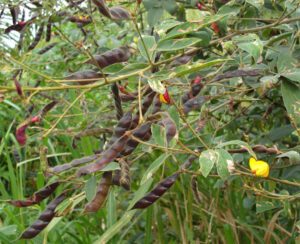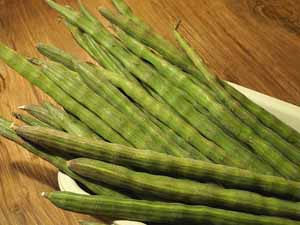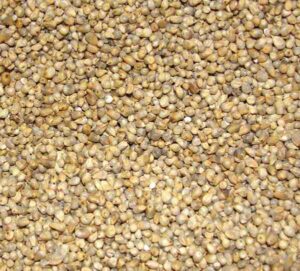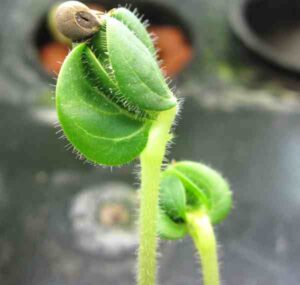Commercial onion farming is a very common, popular and old business in many countries around the world. Actually onions are cultivated and used throughout the world.
The onion is also known by some other names such as bulb onion or common onion. It is a vegetable and this the most widely cultivated species of the genus Allium. Garlic, scallion, chive and Chinese onion are close relatives of onion.
Onion is used mainly as a food item. Onions are generally served cooked, as a vegetable or part of a prepared savory dish, but can also be eaten raw or used to make pickles or chutneys. Most of the onions are pungent when chopped and contain certain chemical substances which may irritate the eyes.
However, onion is one of the most popular and favorite vegetables for most of the people all over the world. Onion farming is very easy and profitable.
Investment required for commercial onion farming business is relatively less and caring the plans is very easy. Beginners can also start commercial onion production easily.
In the year of 2019, total worldwide production of onions and shallots was 4.5 millions tonnes. China was the top producer, producing 22% of world total, and Japan, Mali and South Korea as secondary producers.
However, onion farming is very easy and profitable. You can start this business, even if you are a beginner. Read more information before starting commercial onion farming business.
Nutritional Value of Onions
Onions are great vegetable containing various vitamins, minerals and potent plant compounds that have been shown to promote health in many ways.
People are using onions from the ancient times mainly due to their medicinal properties. They are often used to treat ailments like headaches, mouth sores and hearth disease.
Depending on the variety, most of the onions are about 1% protein, 9% carbohydrates (including 4% sugar and 2% dietary fiber), 89% water and negligible amount of fat.[1]
Onions contain low amounts of essential nutrients and have an energy value of 40 kilocalories in a 100 grams amount. Onions contribute savory flavor to dishes without contributing significant caloric content.
Health Benefits of Onions
Onions are packed in various vitamins and minerals. And the medicinal properties of onions have been recognized since ancient times. However, here we are trying to describe about the top health benefits of onions.
- Onions are loaded with nutrients. They are low in calories but very high in vitamins and minerals. They are a good source of vitamin C, B and potassium.
- Consuming onions may help reduce heart disease risk factors (such as high blood pressure).
- Most of the onions are rich in antioxidants. Red onions are rich in anthocyanins, which are powerful plant pigments that may protect against heart disease, certain cancers and diabetes.
- A diet rich in allium vegetables (like onions) may have a protective effect against certain cancers. So, you can add onions to your daily diet.
- Consuming onions regularly may help reduce high blood sugar, due to the many beneficial compounds found in onions.
- Studies show that onion consumption is associated with improved bone mineral density.
- Onions have antibacterial properties. They prevent the growth of potentially harmful bacteria like E. coli and S. aureus.
- Onions are helpful and may help you to boost your digestive health. They are rich source of probiotics, which help to boost digestive health, improve bacterial balance in your gut and benefit your immune system.
- You can enjoy onions in many different ways. They can easily be added to savory dishes, including eggs, meat dishes, soups and baked goods.
Advantages of Onion Farming Business
Large scale or commercial onion farming business is very old and popular in many countries throughout the world. Starting and operating commercial onion farming business is very easy and simple. Even the beginners can also start this business.
Commercial onion farming is very profitable and a very good way to earn money. Here we are trying to describe the main benefits/advantages of commercial onion farming business.
- Commercial onion farming is a very old and popular business in many countries.
- Many people are already doing this business for earning their livelihood. People are growing onions from the ancient time.
- It’s an established business, so you don’t have to worry much about starting and operating this business. You will be able to find many onion farmers in your area.
- Growing onions is very easy and simple, even the beginners can also start commercial production.
- You can make good profit from onion farming business, because commercial onion production is profitable.
- You will be able to make very good profits within a very short period of time.
- Both demand and value of onions in the market are good.
- It is a very popular item in the vegetable market. So, you don’t h ave to worry much about marketing your products.
- Caring onion plants is very easy, and the plants generally grow very well. You will be able to care for the plants even if you are a beginner.
- Commercial onion farming is very profitable, so it can be a good employment source for the rural people. Especially for the educated unemployed people.
- Commercial production of onions doesn’t require high investment. And you will get back your invested money within a very short period of time.
- Onions are very nutritious and consuming them on a regular basis has many health benefits.
- You can enjoy fresh onions (if you like them) if you start your own onion farming business.
How to Start Onion Farming Business?
Starting commercial onion farming business is relatively easy and simple. Onion plants generally grow well and it’s very easy and simple to care for the plants. Although, you should learn practically from an expert farmer if you are a beginner.

Here we are trying to describe more information about starting and operating a successful onion farming business from planting caring to harvesting and marketing.
Step 1: Good Site Selection
Onions can be grown in a wide range of soils. They can be grown from sandy loam to clay loam with good drainage facilities. Optimum pH level for growing onions should be between 6.5 and 7.5.
Step 2: Land Preparation
Preparing the land perfectly is a very important part of commercial onion farming business. So, prepare the land perfectly.
Plow the land to get fine tilth and apply well rotted farm yard manure at the rate of 20 tonnes per hectare at the time of the last plowing. Contact a local expert for chemical fertilizer recommendations.
Step 3: Consider Climate Requirements
Onion plants grow well and are adapted to a temperature range of 13° C to 24° C for the vegetative stage and 16° C to 21° C for the bulbing stage, and 30° C to 35° C at maturity and harvest.
Best production can be obtained in mild weather without the extremes of cold, heat and excess rainfall.
Step 4: Chose The Right Variety
There are many different onion varieties available to choose from. And all these varieties differ in size, shape and color. Different types of onions are available such as white, red and yellow with the size ranging from small pickling to large.
And shape of the onions also vary, such as globe, top or spindle-shaped. You should choose those varieties which grow well in your area. So, consult with your local farmers for having good recommendations.
Some common onion varieties are Yellow Sweet Spanish, Red Wethersfield, First Edition, Burgundy, White Bermuda and Stuttgarter.
Step 5: Purchase Seeds
Onion plants can be grown in many different ways. You can start growing onions from transplants, sets or seeds. So after selecting the varieties, you can buy either sets, transplants or seeds.
Step 6: Planting
For commercial onion farming, irrigation is necessary at the time of transplanting/dibbling of cloves, and then a light irrigation is required on the 3rd day after planting. Water the transplants immediately after planting.
Step 7: Caring
Onion plats generally require less caring and other management. Although, taking additional caring will help the plants to grow well. Here we are trying to describe more about onion caring.
Feeding/Fertilizing
Onion plants are heavy feeders. They require additional fertilization for better growth. Generally 150:50:80:80 kg NPKS is required per hectare. Apply 50% N and 100% P, K and S as basal dose and remaining 50% of N to be applied in two splits at 30 to 45 days after transplanting. The topdressing must be completed before bulb development.
Irrigation
Irrigation is a must for successful onion farming business. Water the transplants immediately after planting, and apply a light irrigation on the third day after planting and subsequent irrigation will be done at 7 to 10 days interval (depending upon the soil condition and season).
Mulching
Mulching is a good option for retaining moisture into the soil. It also helps to prevent weeds from the field. You can use organic materials for mulching.
Weeding
Weeds consume nutrients from the soil and the plants suffer. So, controlling weeds on a regular basis is very important. Initially, remove all the weeds before planting. You can apply Oxyfluorfen at the rate of 0.15 to 0.25 kg per hectare or Fluchloralin at the rate of 1 kg per hectare or Pendimethalin at the rate of 3.5 litter per hectare.
For direct seeded crop, apply Pendimethalin at the rate of 3ml per liter of water just after sowing. Doing this will not affect the germination and seedling growth.
Step 8: Control Pests & Diseases
Pests and diseases are generally less in onion farming business. Although, you should consult with an expert in your area if you face any problems.
Step 9: Harvesting
You should start harvesting onions at 50% neck fall stage. Harvesting onions at the right stage of maturity is very important. Generally, the onion bulbs reach maturity when the plants cease to produce new leaves and roots.
Neck fall is the indication of maturity of onions. Although, exact time of harvesting depends on several factors such as planting season, variety/cultivar, market price and also the condition of the crop.
If you want to store the onions, then ensure that all the onions are fully developed before harvesting. The onions are generally harvested by hand through pulling the bulbs (if the soil is light).
Step 10: Yield
It’s very difficult to tell the exact number. Because exact exact amount of yield depends on numerous factors. Generally, you can expect between 25 and 30 tonnes per hectare.
Step 11: Marketing
Marketing of onions is very easy. This is a very good advantages of commercial onion farming business. You can sell to local wholesale stores or retail stores or you can even sell in government market yards.
These are the common steps and ways for starting and operating a successful onion farming business. Hope this guide has helped you! Good luck!







Thank you so much for the guide. I did not that onions are such a good business. Now I know.
Best of luck!
It was helpful thanks alot